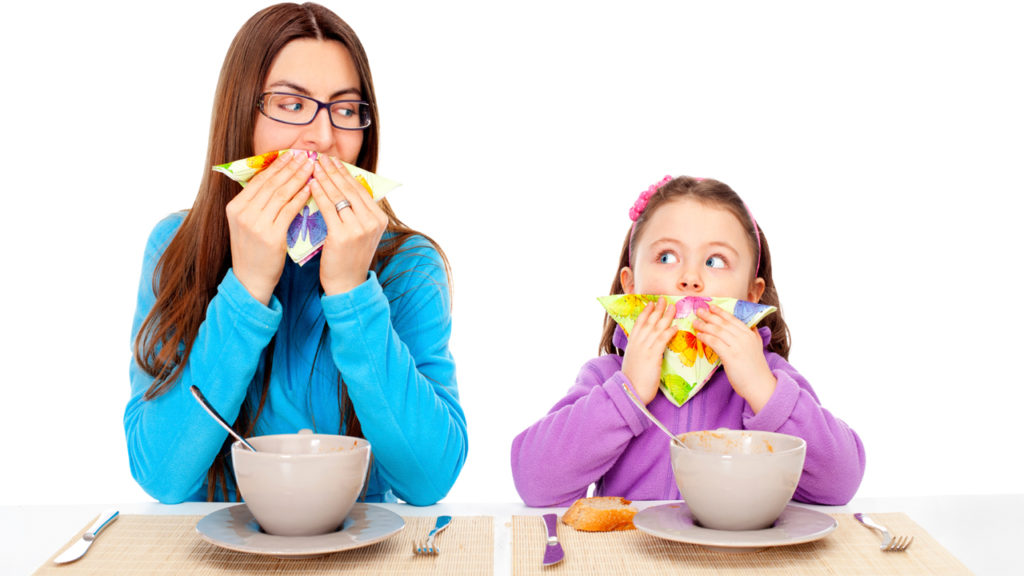I have often wondered how some parents get it right and others fail woefully. Teaching kids to be polite and well mannered is not a function for the minder or the school teachers. Parents have a big role to play; Yes! In the hustle and bustle of our daily lives, moms and dads may not always have the time to focus on teaching their kids proper etiquette, yet we often wonder why some children are so polite.
In this edition, Dr Sears reinforces these 7 Ways to Teach Your Child Good Manners

- Expect respect
Believe it or not, you begin to teach your child good manners at birth, but you don’t call them that. The root of good manners is respect for another person, and the root of respect is sensitivity. Sensitivity is one of the most valuable qualities you can instil into your child — and it begins in infancy. The sensitive infant will naturally become the respectful child who, because he cares for another’s feelings, will naturally become a well-mannered person. His politeness will be more creative and more heartfelt than anything he could have learned from a book of etiquette. In recent years it has become socially correct to teach children to be “assertive.” Being assertive is healthy as long as it doesn’t override politeness and good manners.
- Teach polite words early
Even two-year-olds can learn to say “please” and “thank you.” Even though they don’t yet understand the social graciousness of these words, the toddler concludes that “please” is how you get what you want and “thank you” is how you end an interaction. At least you’ve planted these social niceties into your child’s vocabulary; later they will be used with the understanding that they make others feel good about helping you. When you ask your toddler to give you something, open with “please” and close with “thank you.” Even before the child grasps the meaning of these words she learns they are important because mommy and daddy use them a lot and they have such nice expressions on their faces when they say these words. Children parrot these terms and understand their usefulness long before they understand their meaning.
- Model manners
From age two to four, what Johnny hears, Johnny says. Let your child hear a lot of “please,” “thank you,” “you’re welcome,” and “excuse me” as you interact with people throughout the day. And address your little person with the same politeness you do an adult. Let your child catch the flavour of polite talk.

- Teach name-calling
We have always made a point of opening each request by using the name of our child: “Jim, will you do this for me?” Our children picked up on this social nicety and address us by title: “Dad, may I…” or “Mom, would you…” When he was eight, our son Matthew made all of these language tools part of his social self. Matthew concluded that if he timed his approach for the right moment, looked me in the eye or touched my arm, addressed me as “Dad…,” and adds a “please” or “may I,” he could get just about anything he wants. Even when I know I’m being conned, I’m a pushover for politeness. Although Matthew didn’t always get his politely-presented wish, I always acknowledged his use of good manners.
- Acknowledge the child
The old adage “children should be seen and not heard” was probably coined by a childless person. Include your child in adult goings-on, especially if there are no other children present. When you and your child are in a crowd of mostly adults, tuning out your child is asking for trouble. Even a child who is usually well-behaved will make a nuisance of herself in order to break through to you. Including the child teaches social skills, and acknowledging her presence shows her that she has value.
Stay connected with your child in situations that put her at risk for undesirable behaviour. During a visit with other adults, keep your younger child physically close to you (or you stay close to him) and maintain frequent verbal and eye contact. Help your older child feel part of the action so that he is less likely to get bored and wander into trouble.
- Don’t force manners.
Language is a skill to be enjoyed, not forced. While it’s okay to occasionally dangle a “say please” over a child before you grant the request don’t, like pet training, rigidly adhere to asking for the “magic word” before you give your child what he wants. The child may tire of these polite words even before he understands them. When you remind a child to say “please,” do so as part of good speech, not as a requirement for getting what he wants. And be sure he hears a lot of good speech from you. Overdo politeness while you’re teaching it and he’ll catch the idea faster. “Peas” with a grin shows you the child is feeling competent in her ability to communicate.
- Correct politely
As a Little League baseball coach, I learned to “chew out a child” — politely. When a child made a dumb play (which is to be expected), I didn’t rant and rave like those overreacting coaches you see on television. Instead, I keep my voice modulated, look the child straight in the eye, and put my hand on his shoulder during my sermon. These gestures reflect that I am correcting the child because I care, not because I am out of control. My politeness showed him that I value him and want him to learn from his mistakes so he becomes a better player, and the child listens. I hope someday that same child will carry on these ball field manners when he becomes a coach.
Have you ever wondered why some children are so polite? The main reason is they are brought up in an environment that expects good manners. One day I noticed an English family entering a hotel. The father looked at his two sons, ages five and seven, and said, “Now chaps, do hold the door for the lady,” which they did. I asked him why his children were so well-mannered. He replied, “We expect it.”
Modelling behaviours is the best way to teach your child good manners: Good manners, after all, are necessary for people to live together in this world. Gracious manners reflect a loving and considerate personality.




